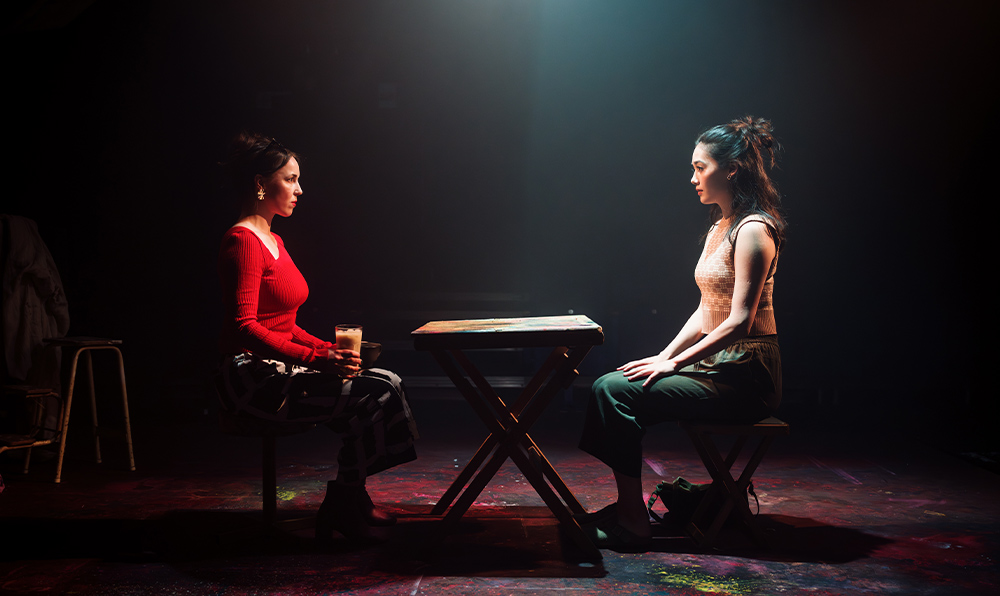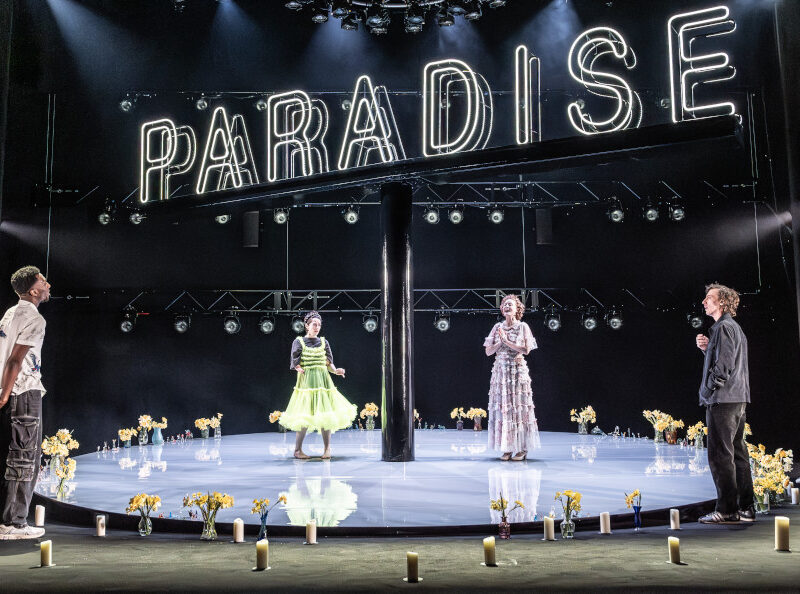
Review: Scarlet Sunday, Omnibus Theatre
Review: Scarlet Sunday, Omnibus Theatre
An intriguing two-hander about the intersection of art and trauma…
Image (c) Alex Brenner
Can you separate the art from the artist? What is the strange power that art holds over us? Is destroying a work of art an act of violence?
These are the questions asked by new play Scarlet Sunday, written by James Alston and currently showing at Clapham’s Omnibus Theatre. The play is a straightforward two-hander that belies the complex themes it attacks, though the story begins rather simply: following the death of lauded artist Ray Blackwood, a journalist meets with the artist’s daughter, who guards a haunting secret, the key to which lies in a mysterious painting, ‘Scarlet Sunday.’ At the crux of the story lies the central question: how do we reconcile great works of art with the dark deeds of their creators?
The play’s two characters are Yasmin, a well-meaning but painfully overeager journalist keen to uncover the “true” Blackwood, and the more reserved Ava, Blackwood’s daughter who appears to be hiding harrowing secrets about her father’s past. The two characters instantly clash, constantly hitting discordant notes off each other. This is where the tension at the heart of the play begins, as an unassuming clash of personalities, before everything quickly spirals and unspools into a cacophony of dark revelations and secrets revealed.
Like many two-handers, the play leans into the claustrophobic atmosphere it naturally propagates. Multiple times, Yasmin complains of the suffocating heat, begging Ava to open a window, growing more agitated and sweaty as the play bubbles towards its boiling point. The resulting effect is one of a foregone conclusion, a doomed story that knows where it’s going but whose two protagonists are powerless to stop its trajectory.
While the spectre of Blackwood looms over the narrative, he is more of a plot device, a vehicle to enable the real story the play wants to tell: the story of the women left in his wake. Blackwood is at the centre of the story’s conflict, but he is the least interesting thing about it; far more enrapturing is watching Ava and Yasmin’s sharply differing trauma responses, their inability to be perfect victims and the way they veer wildly downwards, careening towards a mutually assured destruction.
THE BEST THINGS TO DO:
The two actresses play off each other well: Sorcha Kennedy is suitably grating in the role of talkative Yasmin, who swings by turns between obnoxious pathos and domineering selfishness. Camilla Aiko plays the contrasting Ava with the right amount of cool reticence, before she too begins to spiral towards erratic, emotional extremes, cloyed by the scorching heat and suffocated by the weight of secrets that have spent too long tucked away in the dark.
The play works well as a juxtaposing character study, though does seem at times bowled over by the very themes it wants to tackle. There are difficult, nuanced and complex questions being asked here, about art, about trauma and pain and the nature of abuse, and it does seem as though the story becomes swallowed a little by its own grand ideas.
Still, the play is worth seeing for that very fact – it will leave you uneasy and slightly unsatisfied, but I suspect that is the point. It works best when caught up in the strange yet mesmerising power struggle between its two central characters, as they alternate between perfect understanding and ugly manipulation.
Scarlet Sunday is showing at Omnibus Theatre until 17 March.









